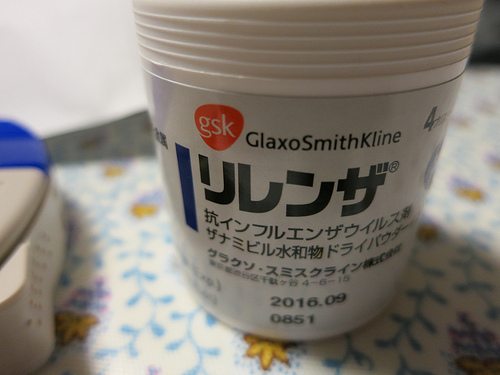

Features
We’ll invest in GlaxoSmithKline for as long as it’s 100% committed to cleaning up its act
Mike Appleby, a sustainable and responsible investment (SRI) analyst at Alliance Trust, explains how the investment house squares pharmaceuticals firm GlaxoSmithKline’s status as a viable sustainable investment with the recent allegations of large-scale bribery in China.
The allegations of bribery and corruption made by the Chinese authorities against GlaxoSmithKline (GSK) are of a serious nature and we are very disappointed in this controversy and these allegations levelled at a company held in our Sustainable Future funds. I believe this disappointment is genuinely shared at GSK.
We will be meeting with the company to specifically discuss the accusations of moral misconduct in China as well as how its own internal investigation and that of the Chinese Ministry of Public Security have reached such wildly different conclusions.
GlaxoSmithKline has had a dark period following its $3 billion settlement in the US for mis-selling drugs. What made us conclude it was still eligible for inclusion in the Sustainable Future funds was its robust and industry-leading response to these problems. Its change of senior management in the US, as well as altering how drugs are now sold, a massive increase in staff training on these issues and a proactive stance in making drug trial data publically available, all place GSK as being among the most proactive in addressing the negative impacts of business.
But why invest in this company – or any other pharmaceutical company at all? GSK has developed drugs and therapies that improve the quality of life by improving patient outcomes and in many cases saving public funds by preventing disease. This is best highlighted by its vaccines business which cost effectively prevents disease.
Vaccines for pneumococcal and rotavirus are now being offered to developing countries at a 90% discount to developed market pricing. The World Health Organisation identifies pneumococcal as the number one vaccine-preventable cause of death in children under five worldwide and rotavirus is the most common cause of severe diarrhoea in young children.
This development is a significant step towards reducing child morbidity in developing countries. Vaccines represent 19% of GSK’s sales. The company is also active in treatments for cancer, anti-infection, as well as central nervous system, respiratory and gastro-intestinal disorders.
So will we continue to hold GSK no matter how bad its business ethics get? No. We will continue to hold the company as long as we are satisfied that it is doing all it can to get its house in order and clean up how it operates if evidenced by a proactive and industry leading response to how it manages its business.
We need to speak with the company and better understand the allegations about corrupt practices in China – they are currently allegations. We will let it know (although this is unlikely to be news to GSK) that the conduct it is accused of is far from OK. We want it to position its behaviour to ensure it maintains a licence to operate as well as a reputation for conducting fair business with good patient outcomes – as we believe this will ultimately improve its medium and longer term commercial success.
Our view of how the company operates will be reflected in its sustainability matrix rating and will decide its eligibility for inclusion in the Sustainable Future funds.
We are disappointed about these accusations against GSK, but, for now, we continue to hold this company in the funds. We are in need of reassurance from management over the allegations levelled at the company.
We do not prejudge the outcome of our discussions or the way the company responds, but this will have a direct bearing on whether we change our sustainability matrix rating which defines whether the company is eligible for the Sustainable Future funds.
Mike Appleby is an SRI analyst at Alliance Trust Investments.
Further reading:
Responsible investors react to GlaxoSmithKline bribery allegations
Moving investment onto ethical footing is better for all, says Church of England
People who reject ethical investment are ‘not going with their values’
Transparency, simplicity and honesty is urgently needed in investment






























